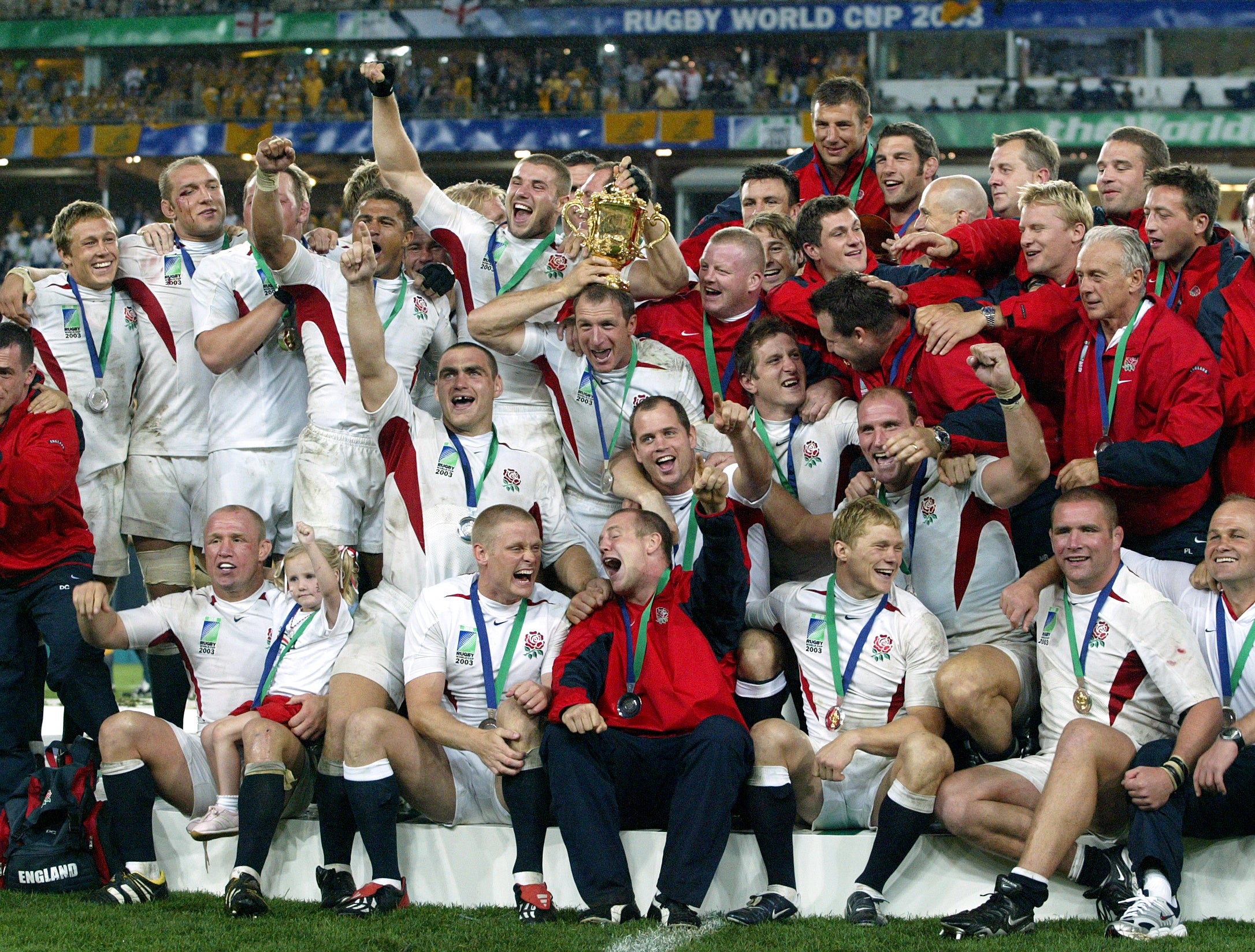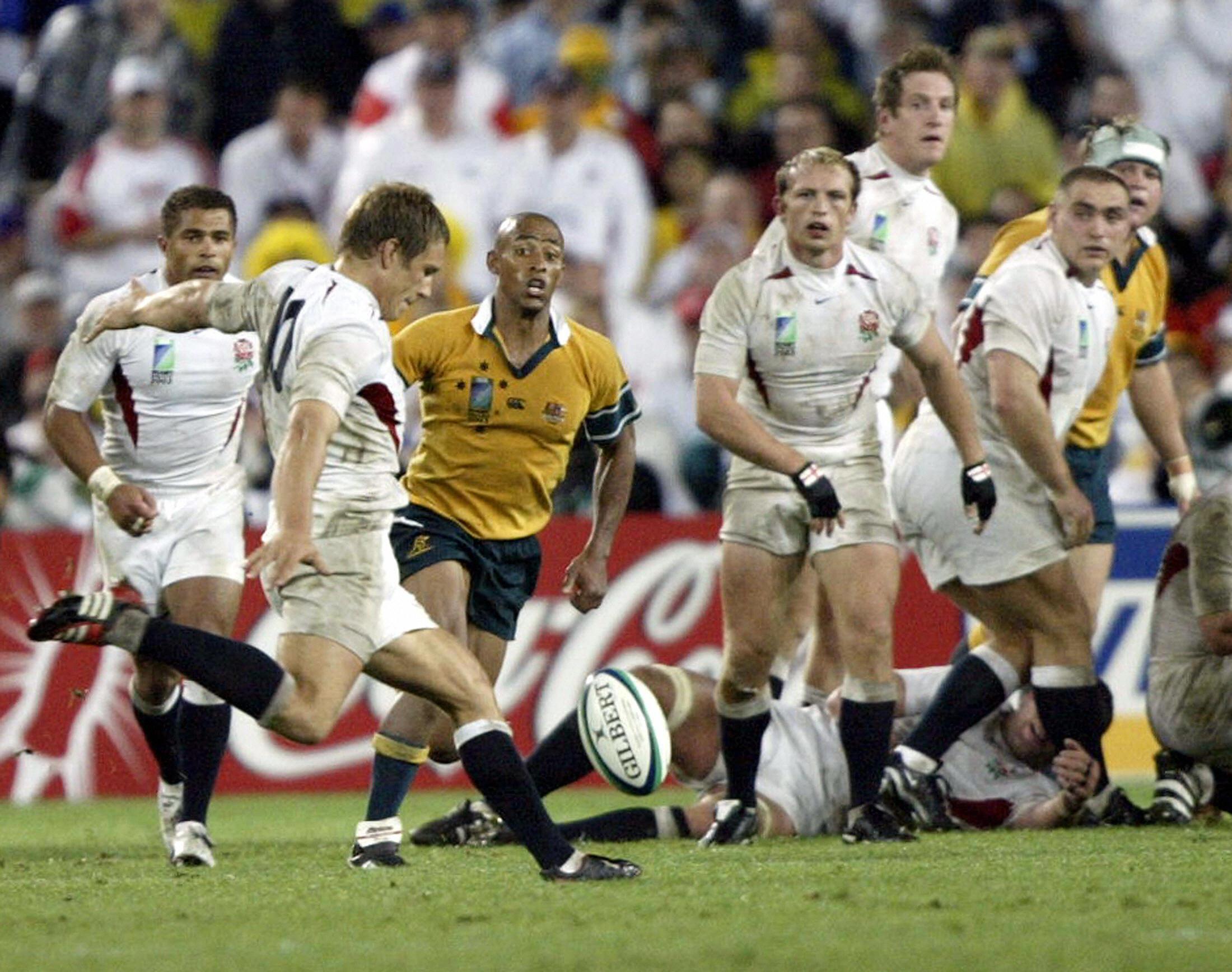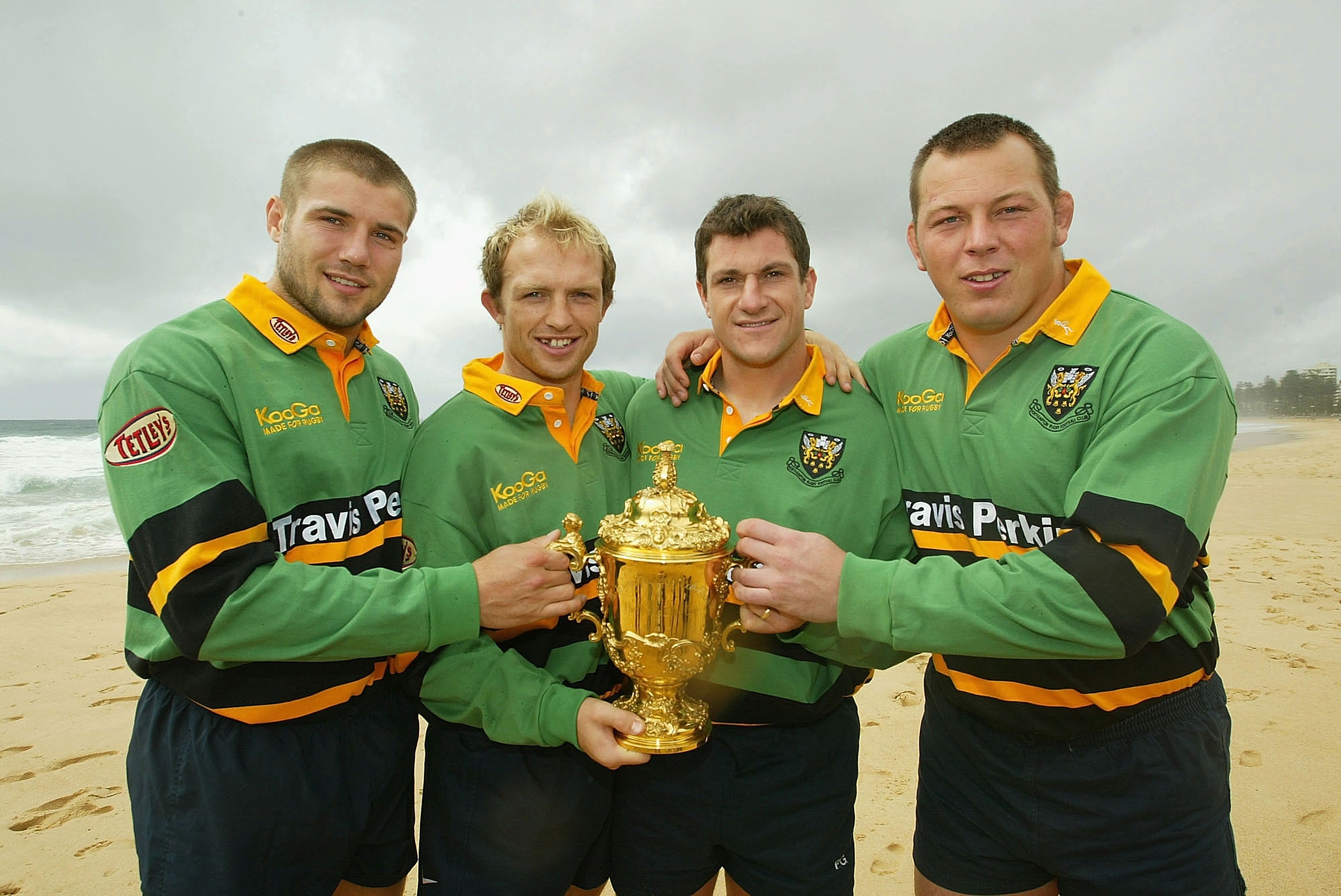The dark and difficult legacy of England’s 2003 World Cup triumph
Two decades on from their triumph in Sydney, many of Clive Woodward’s World Cup-winning squad are struggling

Your support helps us to tell the story
From reproductive rights to climate change to Big Tech, The Independent is on the ground when the story is developing. Whether it's investigating the financials of Elon Musk's pro-Trump PAC or producing our latest documentary, 'The A Word', which shines a light on the American women fighting for reproductive rights, we know how important it is to parse out the facts from the messaging.
At such a critical moment in US history, we need reporters on the ground. Your donation allows us to keep sending journalists to speak to both sides of the story.
The Independent is trusted by Americans across the entire political spectrum. And unlike many other quality news outlets, we choose not to lock Americans out of our reporting and analysis with paywalls. We believe quality journalism should be available to everyone, paid for by those who can afford it.
Your support makes all the difference.It should have been a night of celebration. As they gathered together at the Dorchester Hotel, Sir Clive Woodward’s heroes of 2003 were meant to commemorate a World Cup triumph that still represents the acme of English men’s rugby.
But, as Matt Dawson explains, there was a strange atmosphere in the room. As he caught up with his colleagues two decades on from reaching the mountaintop, what became clear was just how many were struggling on the other side.
“It was very, very apparent that quite a few of the team had struggled in that transition out of sport,” Dawson explains. “A lot of people would say, ‘the guys of 2003 that won the World Cup? Are you mad? How could they be struggling mentally, physically or emotionally? They were these giants of men who conquered the world.’

“Everyone just assumes that everyone is well. To be a successful group, you need character, bravado, you need ego – there was plenty of that flying around. And I think we got to a position in our lives where everything was being dampened, because of where we were in our mid-forties and fifties. That realisation of, ‘we know where this ends, and it’s not a good spot usually’. So, let’s cut all the b******* around it and try and do something about it.”
That venture has come to fruition in recent weeks with the launch of the Champions 2003 charity. Spearheaded by Ben Cohen and Dawson, among others, it aims to spotlight those transitioning out of rugby who are suffering physical and mental health issues, providing support in whatever form is required.
Some of the 2003 squad have been public in the battles they have fought; many have suffered in silence. Some of the group no longer watch rugby. A documentary on the group made by TNT Sports, titled Unbreakable, airs this week and is a difficult watch. Sequences involving Steve Thompson, who has been diagnosed with early-onset dementia, telling Phil Vickery that he remembers nothing of the World Cup or even being in Australia at all are particularly tough.

Vickery himself was declared bankrupt earlier this year. Jonny Wilkinson has spoken regularly about the anxiety he experienced both during his career and since its conclusion. The physical demands rugby requires have taken a significant toll on several of the squad.
Not all are dealing with matters quite so troubling, but there are wider issues that are shared virtually to a man, and common across all sport. Once their time as professionals came to an end, even these great World Cup winners were forced to reinvent themselves, train again and find new avenues to pursue. For many, rugby had been the only thing they had ever been equipped for; coming out of that into what they describe as “civvy street” meant a step into the unknown.
“Everyone faces the same challenge in leaving sport,” Cohen says. “How do I reinvent myself? I’ve got no education or further education. Who am I? Finding out who you are after being in something so systematic is difficult because you don’t know anything else.

“We achieved something very special in rugby. My uncle [George Cohen, an English professional footballer] won a World Cup, so it was a nice family double, but it doesn’t keep you for the rest of your life. I don’t think it should – but I wish I had more understanding of what I’d need when I landed in civvy street. When you leave rugby, you aren’t fit for purpose. There’s no help or support, you are just winging it.
“The perception is that we are all gazillionaires, on the front cover of magazines, on TV. That isn’t normally the reality. Even social media isn’t the reality; that’s a perception. We don’t want people to suffer in silence.”
Dawson has remained a prominent figure both within rugby as a pundit and elsewhere. As we speak at The View from the Shard at a charity launch evening, it is his time on Question of Sport and Strictly Come Dancing that provoke comment rather than his identity as the man who passed the ball to Jonny Wilkinson.
Yet even he has dark tales to tell. “People have seen my journey, going from the England team on to a successful TV show. They think, ‘Dawson is absolutely fine, there’s no problem’.
“I may not have had the more obvious and long-lasting issues that we’ve seen with Steve Thompson or I know about from other members of the squad. But I’ve had to deal with lots of shit that everyone has to deal with. Having two heart operations. Being divorced. Your kid having meningitis and nearly losing her at two. Everyone has their own issues. Just because you are on TV doesn’t mean you are able to escape all of that.

“It’s not just one specific ailment, injury, whatever you want to call it. It is more the pathway and journey from being a sportsman to what are you going to do tomorrow. If I said to you that from tomorrow, you can never be in your profession ever again. You’ve got to reskill – and you are 32 and have got another 30 years before retirement. Say that to anyone, and they would absolutely s*** their pants.”
He wishes that the group that shared a special bond in 2003 and before had remained tighter knit since. “I had frustrations about the fact that we just didn’t see each other enough. But we all went our own way, have got work and families and distractions - actually, that isn’t an excuse.
“It came to a head in that 20th anniversary get-together, which was an amazing weekend. It was very, very apparent that quite a few of the team had struggled in that transition. So why the heck were we not helping ourselves and our teammates get through this? If we can organically look after ourselves and help look after the sport, hopefully, we can look after other sportspeople as well.”
While organisations including The Rugby Players Association (RPA) are improving their offering to current and retired professionals, there is still a sense that not enough is being done to equip players for life after rugby. Careers can be short and, compared to other sports, comparatively low-earning. Cohen suggests that in some ways, those like Jason Leonard who came through in the era of amateurism were better prepared given the need to have a day job alongside rugby.
The Champions 2003 charity hopes to use the profile of the squad to highlight the issues and support available. The squad were paraded on the pitch at Twickenham ahead of England’s November defeat to the All Blacks to a rapturous reception, while the event at The Shard showed the star power that the group still carry, with Cohen, Dawson and Neil Back speaking to a group about twice the size of the organisers’ intended audience.

“For us, it’s about leaving a legacy so that future players leaving rugby can get mental health and therapy support, pathways into education and jobs,” Cohen adds. “And it comes back to men’s mental health. Who do you talk to? Where do you go for help? For us to hopefully make a difference for the next generation is what we should be doing. I think that is more important than winning a World Cup.”
If you are experiencing feelings of distress, or are struggling to cope, you can speak to the Samaritans, in confidence, on 116 123 (UK and ROI), email jo@samaritans.org, or visit the Samaritans website to find details of your nearest branch. If you are based in the USA, and you or someone you know needs mental health assistance right now, call or text 988, or visit 988lifeline.org to access online chat from the 988 Suicide and Crisis Lifeline.
This is a free, confidential crisis hotline that is available to everyone 24 hours a day, seven days a week. If you are in another country, you can go to www.befrienders.org to find a helpline near you.



Join our commenting forum
Join thought-provoking conversations, follow other Independent readers and see their replies
Comments